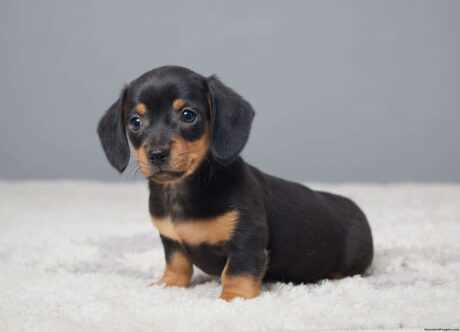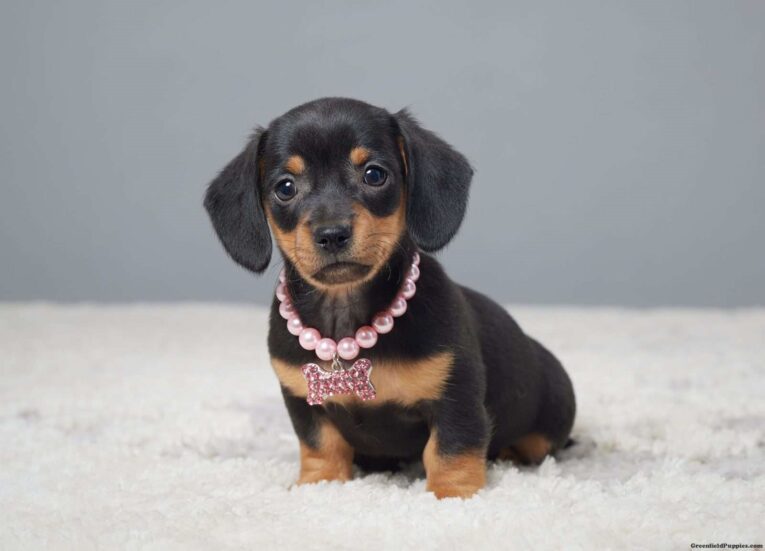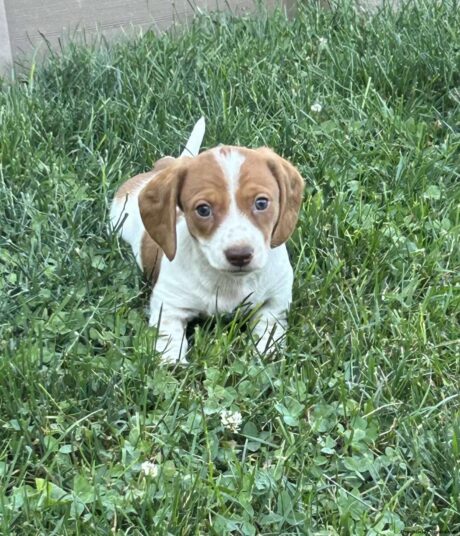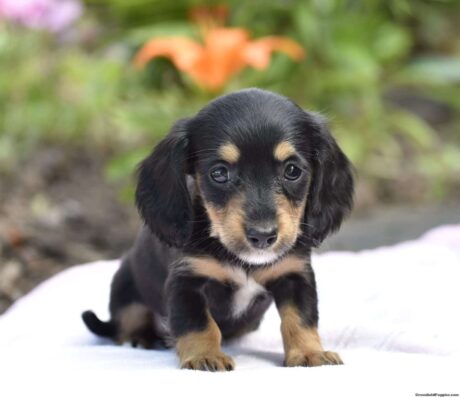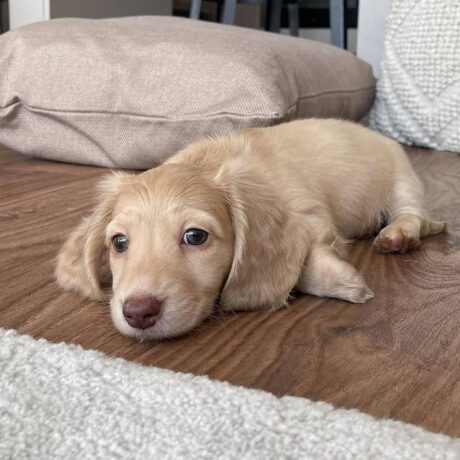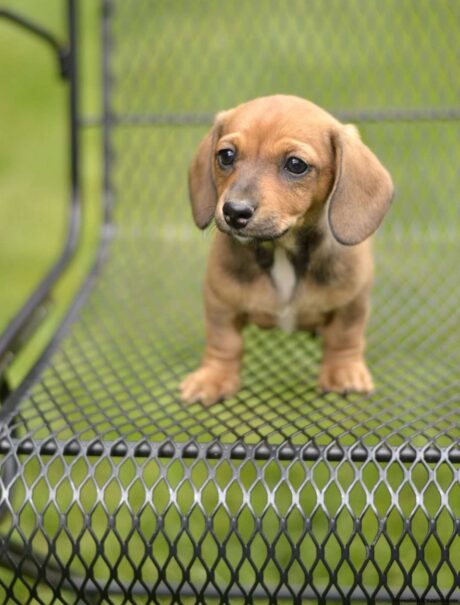Miniature Dachshund Puppies: A Comprehensive Guide
Miniature Dachshund puppies are a captivating and charming breed known for their distinctive appearance and endearing personalities. With their long bodies and short legs, these small dogs have become a beloved choice for many dog enthusiasts. This comprehensive guide will delve into everything you need to know about miniature Dachshund puppies, from their history and characteristics to their care and training.
History of the Miniature Dachshund
The Dachshund breed, including the miniature variety, has a rich history that dates back to 15th century Germany. The name “Dachshund” literally translates to “badger dog,” reflecting their original purpose: hunting badgers. These tenacious little dogs were bred to be fearless and determined, traits that remain evident in today’s miniature Dachshunds.
Origins and Development
Miniature Dachshunds were developed by selectively breeding smaller Dachshunds to create dogs that could hunt minor game like rabbits. This selective breeding process ensured that the miniature Dachshund retained the same courageous spirit and keen hunting instincts as its larger counterparts.
Physical Characteristics
Miniature Dachshunds are known for their unique and instantly recognizable appearance. Here, we will explore the physical traits that define this breed.
Size and Weight
A typical miniature Dachshund stands 5 to 6 inches tall at the shoulder and weighs 8 to 11 pounds. Its long, muscular body and short legs give it a distinct silhouette that sets it apart from other breeds.
Coat Types
Miniature Dachshunds have three coat types: smooth, long-haired, and wire-haired. Each coat type has unique characteristics and grooming requirements.
- Smooth Coat: Short, shiny, and low-maintenance.
- Long-Haired: Soft, wavy, and requires regular brushing to prevent matting.
- Wire-Haired: Coarse, dense, and has a distinctive wiry texture. Needs regular trimming and grooming.
Colors and Patterns
Miniature Dachshunds exhibit various colors and patterns, making each dog genuinely unique. Standard colors include red, black, tan, chocolate, cream, and blue. Patterns such as dapple, brindle, and piebald add even more variety to this breed’s appearance.
Temperament and Personality
Miniature Dachshunds are known for their lively and spirited personalities. Despite their small size, they possess a bold and confident demeanor. Here, we will discuss the critical aspects of their temperament and behavior.
Intelligent and Curious
These dogs are brilliant and naturally curious about the world around them. This makes them quick learners but also means they can be pretty naughty if adequately trained and engaged.
Loyal and Affectionate
Miniature Dachshunds form strong bonds with their owners and are known for their loyalty and affectionate nature. They thrive on human companionship and often seek out attention and cuddles from their family members.
Independent and Stubborn
While they are loving and loyal, miniature Dachshunds also have an independent streak. This can sometimes translate into stubbornness, especially during training sessions. Consistent, positive reinforcement methods are essential for successful training.
Caring for Your Miniature Dachshund Puppy
Proper care and attention are crucial for ensuring the health and happiness of your miniature Dachshund puppy. Here, we will provide detailed information on the critical aspects of caring for this breed.
Feeding and Nutrition
A balanced diet is essential for the overall health of your miniature Dachshund. High-quality commercial dog food, appropriate for their age and size, is recommended. Be mindful of portion sizes to prevent obesity, as this breed is prone to weight gain.
Exercise and Activity
Despite their small size, miniature Dachshunds are energetic and require regular exercise to stay healthy and happy. Daily walks, playtime, and mental stimulation are essential to prevent boredom and destructive behaviors.
Grooming Needs
Grooming requirements vary depending on the coat type of your miniature Dachshund.
- Smooth-coated dachshunds need minimal grooming. Regular brushing with a soft bristle brush and occasional baths are sufficient.
- Long-haired dachshunds require more frequent brushing to prevent tangles and mats. Regular baths and trimming are also necessary.
- Wire-haired dachshunds need regular brushing and occasional professional grooming to maintain their coat.
Health and Veterinary Care
Regular veterinary check-ups are essential to monitor your puppy’s health and address potential issues early on. Miniature Dachshunds are prone to certain health conditions, including:
- Intervertebral Disc Disease (IVDD): Dachshunds are susceptible to back problems due to their long spine. Maintaining a healthy weight and avoiding activities that strain their back is crucial.
- Obesity: This breed is prone to weight gain, exacerbating health problems. A balanced diet and regular exercise are essential.
- Dental Issues: Regular dental care, including brushing and professional cleanings, is necessary to prevent dental diseases.
Training Your Miniature Dachshund Puppy
Training is an essential aspect of raising a well-behaved and happy miniature Dachshund. Given their intelligence and sometimes stubborn nature, early and consistent training is recommended.
House Training
Start housetraining your puppy as soon as you bring it home. Establish a routine and take them outside frequently, especially after meals and naps. Positive reinforcement methods, such as treats and praise, effectively encourage good behavior.
Basic Commands
Teaching basic commands like sit, stay, come, and leave is essential for their safety and peace of mind. Short, positive training sessions work best, as miniature Dachshunds can have short attention spans.
Socialization
Expose your miniature Dachshund puppy to various people, places, and other animals to help them become well-rounded and confident adults. Early socialization can prevent behavioral issues and promote positive interactions.
Living with a Miniature Dachshund
Miniature Dachshunds can adapt well to various living environments, including apartments and houses with yards. Here, we will discuss some considerations for living with this breed.
Compatibility with Families and Other Pets
Miniature Dachshunds are generally good with children and can get along with other pets if properly socialized. However, their hunting instincts may make them inclined to chase smaller animals.
Separation Anxiety
Due to their strong bond with their owners, miniature Dachshunds can experience separation anxiety if left alone for long periods. Gradual training and providing stimulating toys can help alleviate this issue.
Creating a Safe Environment
Ensure your home is safe for your miniature Dachshund by removing hazards and providing them with a comfortable space to rest and play. Baby gates can help limit access to certain areas.
Conclusion
Miniature Dachshund puppies are a delightful addition to any family, offering a unique combination of loyalty, intelligence, and charm. By understanding their history, characteristics, and care needs, you can ensure a fulfilling and happy life for your furry companion. Whether you are a seasoned dog owner or new to the breed, the joy and companionship of a miniature Dachshund are truly unparalleled.
